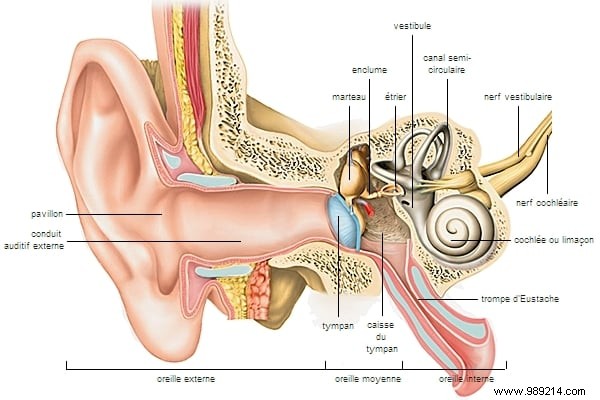Company aims to reverse hearing loss with regenerative therapy. To do this, the drug candidate from Frequency Therapeutics, a spin-off from MIT, would stimulate the growth of hair cells in the inner ear. Early results from clinical trials are encouraging.
Hearing loss is defined as a decrease in the ability to perceive sounds. In the absence of care, it can be particularly troublesome on a daily basis. For many people, hearing loss can indeed lead to isolation and frustration. The biotechnology company Frequency Therapeutics, however, intends to reverse this disorder. However, she does not intend to do so with hearing aids or implants, but with a new type of regenerative therapy .
Each human is born with about 15,000 hair cells (sensory auditory cells) in each cochlea (an organ located in the inner ear along with the vestibule and auditory nerve). These cells then die over time and never regenerate .
Like stem cells, so-called "progenitor" cells nevertheless have the potential to develop into specialized cells in the human body. As part of this work, which has been ongoing for several years, scientists have therefore sought to use the progenitor cells residing in the inner ear to transform them into hair cells .
In 2012, the team had already been able to use small molecules to transform progenitor cells into thousands of hair cells in the laboratory. More recently, the company has taken a step forward by proposing a drug candidate capable of operating directly in the inner ear, within the cochlea.

To date, the company has already tested its drug on over two hundred patients in three separate clinical studies and seen clinically significant improvements of speech perception in some participants after a single injection. Some responses also last nearly two years .
“Some of these people [in the trials] hadn't heard anything for thirty years. For the first time, they could now walk into a crowded restaurant and listen to what their children were telling them “, indeed assures Robert Langer, of MIT and co-founder of the company. “Hearing is such an important sense:it connects people to their community and cultivates a sense of identity “, adds Jeff Karp, of Harvard-MIT Health Sciences and Technology and professor of anesthesia at Brigham and Women’s Hospital. “I think the potential for hearing restoration will have a huge impact on society. "
The latter also believes that this type of approach could become commonplace within ten or fifteen years . It refers in particular to Lasik surgery, the corneal refractive surgery technique. "You're in and out within an hour or two with your vision fully restored “, he said. "I think we'll see the same for hearing loss" .
Another study showed no improvement in hearing compared to the placebo group, but the company attributes this result to flaws in the trial design . Now the company is recruiting a new group of 124 people. Preliminary results of this new test should be available early next year.